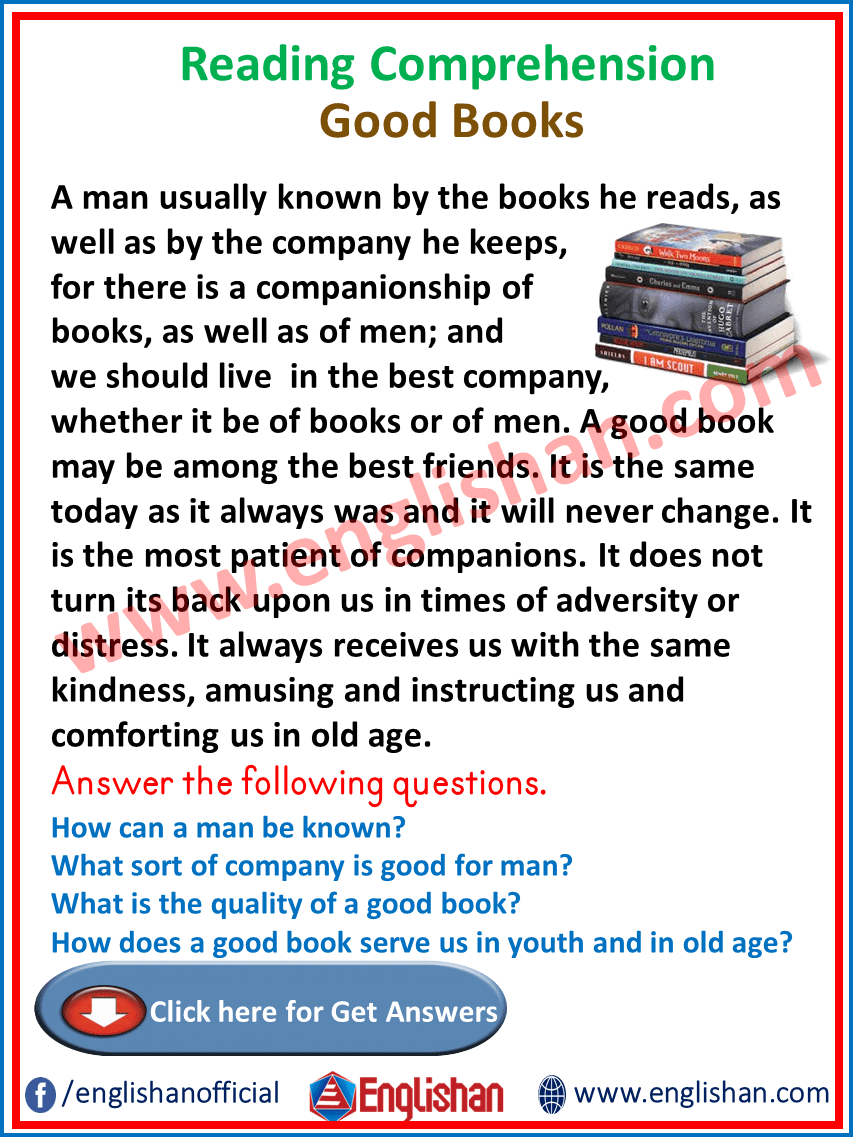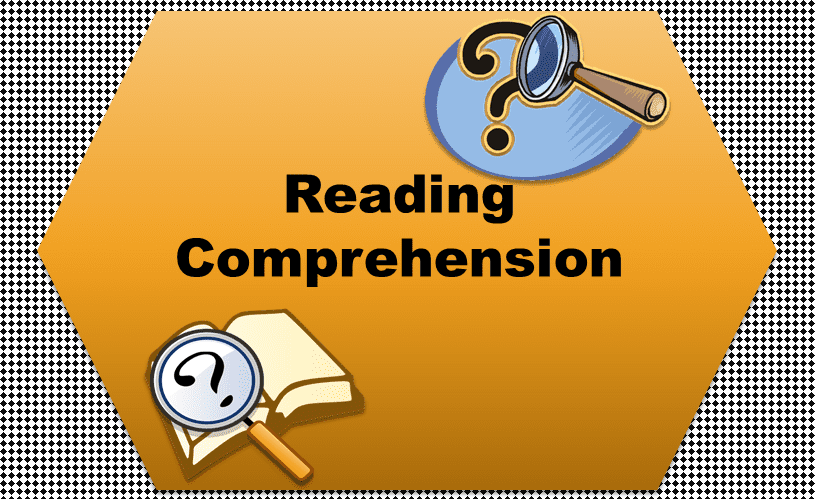A man usually known by the books he reads, as well as by the company he keeps, for there is a companionship of books, as well as of men; and we should live in the best company, whether it be of books or of men. A good book may be among the best friends. It is the same today as it always was and it will never change. It is the most patient of companions. It does not turn its back upon us in times of adversity or distress. It always receives us with the same kindness, amusing and instructing us and comforting us in old age.
- How can a man be known?
- What sort of company is good for man?
- What is the quality of a good book?
- How does a good book serve us in youth and in old age?
Answers:
- A man usually known by the books he reads and the company he keeps.
- The company of good, nice, and pious men and of good books is good for men.
- A good book may be among the best friend. It is the same today as it always w as and it will never change.
- A good book always receives us with the same kindness, amusing and instructing us and comforting us in old age.

FAQs
The highest level of reading comprehension is critical reading, where readers analyze, evaluate, and make connections beyond just understanding the text.
The 4 C’s for reading comprehension are:
1. Context – Understanding the background of the text.
2. Clarity – Making sure the meaning is clear.
3. Comprehension – Grasping the main idea and details.
4. Critical Thinking – Thinking deeply about what the text is saying.
These help you better understand and analyze what you read.
Advanced reading skills include:
1. Critical Thinking – Deeply analyzing the text.
2. Inferencing – Guessing based on clues.
3. Summarizing – Picking out main points.
4. Synthesizing – Combining ideas from different sources.
5. Evaluating – Judging the quality of information.
6. Skimming and Scanning – Finding key details quickly.
7. Understanding Difficult Words – Figuring out hard words.
These skills help you understand and analyze texts better.
The “Big 5” of reading comprehension are:
1. Phonemic Awareness – Recognizing sounds.
2. Phonics – Matching letters to sounds.
3. Fluency – Reading smoothly.
4. Vocabulary – Knowing word meanings.
5. Comprehension – Understanding the text.
You May Also Like

